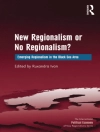A physician-anthropologist explores how public health practices-from epidemiological modeling to outbreak containment-help perpetuate global inequities.In Epidemic Illusions, Eugene Richardson, a physician and an anthropologist, contends that public health practices-from epidemiological modeling and outbreak containment to Big Data and causal inference-play an essential role in perpetuating a range of global inequities. Drawing on postcolonial theory, medical anthropology, and critical science studies, Richardson demonstrates the ways in which the flagship discipline of epidemiology has been shaped by the colonial, racist, and patriarchal system that had its inception in 1492.Deploying a range of rhetorical tools, including ironism, "redescriptions" of public health crises, Platonic dialogue, flash fiction, allegory, and koan, Richardson describes how epidemiology uses models of disease causation that serve protected affluence (the possessing classes) by setting epistemic limits to the understanding of why some groups live sicker lives than others-limits that sustain predatory accumulation rather than challenge it. Drawing on his clinical work in a variety of epidemics, including Ebola in West Africa and the Democratic Republic of Congo, leishmania in the Sudan, HIV/TB in southern Africa, diphtheria in Bangladesh, and SARS-Co V-2 in the United States, he concludes that the biggest epidemic we currently face is an epidemic of illusions-one that is propagated by the coloniality of knowledge production.
Eugene T Richardson
Epidemic Illusions [PDF ebook]
On the Coloniality of Global Public Health
Epidemic Illusions [PDF ebook]
On the Coloniality of Global Public Health
Cumpărați această carte electronică și primiți încă 1 GRATUIT!
Limba Engleză ● Format PDF ● Pagini 224 ● ISBN 9780262365185 ● Editura The MIT Press ● Publicat 2020 ● Descărcabil 3 ori ● Valută EUR ● ID 8106104 ● Protecție împotriva copiilor Adobe DRM
Necesită un cititor de ebook capabil de DRM












